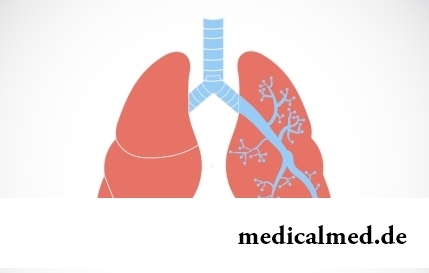





Empathy
 The internal Universe of each person is unique. We come to this world with the type of temperament and we pass through unique life experience which influences our habits, outlook and a way of perception of the world around. Looking at snowfall, one person delightfully will notice: "There are white snow!". Another will nervously throw: "The muck in a face climbs". And despite it, we sometimes nevertheless manage to comprehend inner world and an emotional condition of other person. This phenomenon is called empathy or empathy.
The internal Universe of each person is unique. We come to this world with the type of temperament and we pass through unique life experience which influences our habits, outlook and a way of perception of the world around. Looking at snowfall, one person delightfully will notice: "There are white snow!". Another will nervously throw: "The muck in a face climbs". And despite it, we sometimes nevertheless manage to comprehend inner world and an emotional condition of other person. This phenomenon is called empathy or empathy.
Empathy origin
The empathy is a word of the Greek origin, it means conscious empathy to an emotional condition of other person.
Sorting that means the word "empathy", many confuse it to compassion though in practice this term means ability to empathize any emotions, not only negative, but also positive. Today there were several interpretations of the term "empathy".
In medicine the part of understanding and demonstration of understanding of an emotional condition of other person is assigned to it. To the forefront there is an empatichesky hearing aiming to allow to the patient to be uttered, encourage it to frank expression of the feelings and feelings here.
In psychology the emotional empathy is considered norm, there are even special techniques of identification at people of ability to this form of mental activity who differ from an easy response before full immersion in feelings of the interlocutor. But you should not confuse to identification during which the person not just understands feelings of another as it happens to empathy, but also in some way does not distinguish them with the.
In fiction the term "empat" found new value which reminds emotional telepathy more and is considered ekstrasensorny ability. However in reality similar experiments with empathy did not manage to be repeated.
Types of empathy
In classical psychology the empathy is subdivided on emotional, cognitive and predicative.
The emotional empathy is the form of mental activity based on mechanisms of a projection and imitation reactions of the interlocutor (motor, affective). And speaking about empathy in life, we mean emotional empathy, otherwise, ability to project on ourselves experiences of other person and to reproduce these emotions on ourselves.
The cognitive empathy is based on such intellectual processes as analogy and comparison. It takes place in scientific discussions and polemics.
The predicative empathy represents ability to predict feelings of other person in certain situations. And though this term hardly someone uses in life, in practice ability to put himself to the place of another and to predict what feelings he at the same time will have, most of people can.
Psychologists also allocate such forms of empathy as empathy and sympathy in special categories. The empathy is an experience of emotions of the interlocutor through an identification with it. Sympathy, on the contrary, represents experience of own emotions experienced concerning feelings of the interlocutor.
Development of empathy
The emotional empathy at different people has the special extents of expression. The lowest level is characterized by concentration on itself and indifference to thoughts and feelings of other people. Representatives of this look, appear, do not feel emotional empathy in principle. They seldom understand people around, feel discomfort in the unfamiliar companies, and therefore try to live in solitude. As a rule, people with the low level of emotional empathy have few friends, and what is – rather colleagues.
Second level of empathy the most widespread. His representatives are indifferent to thoughts and feelings of others, but in rare instances can show empathy. They are capable to express emotions, but prefer to keep them under control. Manifestation, characteristic of this level of development of empathy, – the person loves movies and art books, but prefers action, but not the description of experiences.
The third level of empathy – high and at the same time rare. His representatives understand and feel emotions of others better, than own. These are devoted and generous friends, people, not indifferent to problems of people around. They are kontaktna, are sympathetic, sociable, sincere, trust feelings and an intuition. The reverse of the medal is that representatives of this level of emotional empathy wait for social approval of the actions and easily are out of balance.
In addition to levels of empathy there is also a classification of people by this sign. They are subdivided on "not empat", "weak empat", "functional empat" and "professional empat". The first category – those to whom the feeling of empathy is not familiar. The second category well knows about empathy, only has a constant stress with experience of weight of the world. The third category easily adapts to emotions and does not pass them through itself. Professional empata easily distinguish emotions, even those which the interlocutor prefers to hide, but the main thing, they have ability to manage others mental experiences. And it is quite useful skill for psychologists and teachers. If you want to learn to understand other people, consecutive development of empathy will help to find this ability.
Diagnosis of empathy
 To define whether you are capable to understand an emotional condition of surrounding people, there are acquired techniques. For example, diagnosis of empathy can be carried out by means of the scale of an emotional response developed by professor of psychology Albert Megrabyan. This scientist offered a simple and effective questionnaire which reveals the level of abilities to emotional empathy on feelings of the interlocutor and degree of its compliance of reality of the subject.
To define whether you are capable to understand an emotional condition of surrounding people, there are acquired techniques. For example, diagnosis of empathy can be carried out by means of the scale of an emotional response developed by professor of psychology Albert Megrabyan. This scientist offered a simple and effective questionnaire which reveals the level of abilities to emotional empathy on feelings of the interlocutor and degree of its compliance of reality of the subject.
The test for diagnosis of empathy consists of 25 questions which bring to one of five levels of empathy from very high to very low. And though can seem to you that the highest level of empathy at the same time is also the best, actually hypertrophied sensitivity results in emotional dependence, vulnerability and even to psychosomatic diseases. Certainly, it is worth developing in itself ability to listen to another, to paraphrase and reflect his emotions. But at the same time it is necessary to choose effective behavioural strategy which will allow you to observe balance between rational sober mind and sensitive sympathetic emotionality.
At regular visit of a sunbed the chance to develop a carcinoma cutaneum increases by 60%.

For anybody not a secret that our country is one of the most "drinking" in the world. At clear understanding of that the use of strong...
Section: Articles about health
In consciousness of our many compatriots idea that folk remedies if are no more effective, than medicinal "chemistry" strongly took roots, then are precisely less harmful. Unfortunately, it is not always fair: some receptions treating...
Section: Articles about health
They say that to ensure health and longevity of people it is obliged. Really, at competent approach to these questions, minimization of an adverse effect of many factors does not represent a special problem. Practically everyone has an opportunity to play sports, to pick up an optimum operating mode and rest, to adjust healthy food, to refuse addictions. It is more difficult to exclude hit in an organism of harmful substances through a respiratory organs: not all are able to afford to live in the area with хо...
Section: Articles about health
Epilepsy is one of widespread neurologic diseases. To parents, whose children suffer from this illness, it is necessary...
Section: Articles about health
The sclera and mucous membrane of an eye are intensively supplied with blood vessels which problem - to saturate nervous tissues of body with nutrients and oxygen. In a normality vessels are almost not noticeable, however at their expansion (owing to истонч...
Section: Articles about health
The climax, or menopause is the normal process of the termination of genital function of the woman which is followed by serious hormonal changes in an organism. Usually the menopause begins at the age of 50-55 years, but characteristics of this process are very individual. Factors of earlier approach of a climax are irregular sex life, numerous abortions, addictions, existence of endocrine, autoimmune and gynecologic diseases, frequent stresses and excessive hobby of diets...
Section: Articles about health
Deciding to get rid of an addiction, not all imagine what effects it is necessary to face. Process of refusal from ку...
Section: Articles about health
Each person knows that fervescence is an illness sign. However too low temperature (hypothermia), especially also can demonstrate existence of diseases when it is observed long enough. Such state is dangerous those...
Section: Articles about health
There is an opinion that at low temperatures safety of products is ensured longer and better thanks to what the refrigerator is considered the most suitable place for storage of food. In most cases it is fair, however there is a number of products for which low temperatures – the main reason of their premature damage. Storage in the refrigerator leads to their bystry rotting, emergence of a mold, is followed by loss of vitamins and tastes. What products it is better to remove...
Section: Articles about health
Insufficiently strongly expressed sexual desire or lack of satisfaction from sexual contacts can test time from in...
Section: Articles about health
(Xerostomia) many people consider feeling of a xerostomia small and easily removable inconvenience. This delusion: the symptom can demonstrate existence of serious diseases. It is worth to remember also that saliva performs important functions...
Section: Articles about health
Transfusion of donor blood has almost century history. In spite of the fact that this procedure is quite usual for many people, process of blood donation is still surrounded with numerous myths. Today we aimed to discredit the most widespread of them....
Section: Articles about health
When overcomes feeling of hunger, and an opportunity to have dinner fully is absent, having a snack − small on volume comes to the rescue...
Section: Articles about health
The chia plant, or the Spanish sage, is from South America. The indigenous people of the continent since ancient times used its seeds in food: small, but very nutritious kernels, in a form the reminding fasolina. Indians knew about useful properties of seeds of a chia, and applied...
Section: Articles about health
For many spouses the question of planning of a family is one of the main. The problem of the choice of effective and safe contraceptives at the same time comes out on top. Russians still not often resort to operation of a vasectomy extremely popular in the USA, and also in some European and Asian countries. The reason is simple: most of men simply do not possess the complete information about specifics and effects of this procedure. Let's try to meet this lack and to acquaint readers about those...
Section: Articles about health
The trophic ulcer is not an independent disease. This heavy complication arising owing to a thermal injury (a burn...
Section: Articles about health
Long time antibiotics were considered as a panacea from all diseases and were appointed even at insignificant symptoms of an infection. Even now not everyone knows in what force of antibiotics how and when they should be accepted. Let's discredit 7 popular myths about such drugs...
Section: Articles about health
Heart disease and blood vessels lead to disturbance of blood supply of bodies and fabrics that involves failures in their work, deterioration in health of the person, decrease in its working capacity and standard of living. Annually more than 17 million inhabitants of our planet perish from pathologies such....
Section: Articles about health
It would seem, about it there can be no disagreements: water is necessary for a human body for normal zhiznedeyatet...
Section: Articles about health
Healthy lifestyle today in fashion, and many parents think of that the child from the early childhood played sports. Trainings will help it to become strong and hardy, will improve coordination of movements, and also will exert positive impact on mentality: it...
Section: Articles about health
Statistically, can only one of ten of our compatriots brag of a decent condition of an oral cavity. Six teeth affected with caries are the share of the average Russian. For comparison, this indicator for Europeans is almost six times less....
Section: Articles about health
Cold – a state known to everyone which is followed by cold, cough, high temperature, a pharyngalgia. Often перво...
Section: Articles about health
It is possible to find the extensive range of fruit and vegetables in modern shops. Russians already got used that on counters there is not only a seasonal domestic production, but the vegetables and fruit which are grown up in the countries with more comfortable conditions at all seasons of the year...
Section: Articles about health
Diseases of joints often begin imperceptibly for the person. The first stages of destruction of the cartilaginous tissue providing soft and free sliding of heads of bones in joint bags proceed slowly and absolutely without serious consequences. Especially unpleasantly for the fact that this process is not connected with advanced age: degradation of joint surfaces is, as a rule, noticeable after 30 years. It means that practically each able-bodied person at any time can face sad results...
Section: Articles about health
Tick-borne encephalitis – one of the most dangerous viral diseases which causative agents transfer and is given to people by ixodic mites. Эт...
Section: Articles about health
Radiological methods of a research are applied in medicine more than hundred years, and thanks to them millions of lives were saved. In many cases without X-ray it is impossible to make exact idea of a condition of bodies and fabrics, it is correct to make the diagnosis. Those...
Section: Articles about health
Good appetite was always considered as a sign of good health. The correct operation of the mechanism which is responsible for the need for nutrients and receiving pleasure from process of its satisfaction demonstrates that the organism functions without special deviations. On the other hand, appetite of the person is not a constant. It depends on the culture of food, flavoring addictions imparted since the childhood which can change during life, weather, mood and many д more than once...
Section: Articles about health
